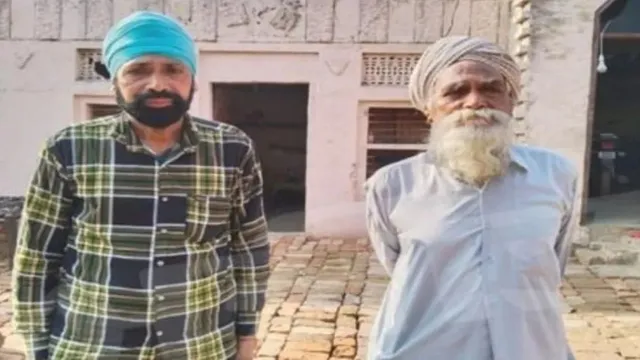- By Priyanka Koul
- Thu, 06 Feb 2025 10:06 AM (IST)
- Source:JND
US Deportation Policy: A C-17 wide-bodied aircraft from the US Air Force landed at Guru Ram Dass Jee International Airport in Amritsar on February 5, 2025, bringing back nearly 100 Indian nationals who were deported after being suspected by US authorities of entering the country illegally.
Among the passengers were many young individuals whose aspirations for a better life had come to an abrupt end. Some families had sold their land or taken hefty loans to send their children abroad, hoping for a brighter future. While some relatives are relieved to see their grandchildren return safely, others are heartbroken over the return of their sons. One family member has even been hospitalised due to the emotional toll.
The Struggles of Young Migrants
As reported by jagran.com, six young men from a district in Punjab had set out for the US just a few months ago, hoping to escape poverty and find better opportunities. They had only recently arrived in US camps when they were ordered to return home.
Vikramjit Singh, one of the deported migrants, spoke exclusively to jagran.com about his journey. He described how he travelled through dangerous jungles and took the "donkey route," a term used for illegal migration paths, to reach the US However, he ended up stuck in a refugee camp after the US government initiated his deportation.
Vikramjit Singh’s father, Asis Singh, shared how he had sent his son to the US by investing around 50 lakh rupees. After a long and dangerous journey through several countries, Vikramjit finally reached America, but was later detained in a camp by US authorities. Asis expressed his sorrow at the US government's decision but is relieved that his son is safely returning home.
Vikramjit's grandfather, Harmel Singh, added that the family had mortgaged their land and taken out a large loan to fund his trip, hoping that his success in America would improve their financial situation. Sadly, the family's hopes were dashed by the recent deportation order. Despite their financial struggle, Harmel is thankful for his grandson's safe return and remains hopeful. He said, "We’ll eat less and try to manage somehow. We’ll try to repay the loan. The decision by the Trump administration has saddened the entire family. If the Punjab government helps us, we’ll somehow manage to live."
Also Read: US Mass Deportation: Criminal Records Of 104 Deported Indians To Be Scrutinised By Government
Another Migrant’s Story: Sonu’s Journey
Another deported migrant, Gurpreet Singh, also known as Sonu Atwal, from the village of Tarf Behbal Bahadur, had gone to the US last year after working in the maize fields. He had paid an agent 35 lakh rupees to help him get to America, but after being caught by US authorities, he ended up in a refugee camp. His mother, devastated by the news of his deportation, has fallen ill and is being treated in Lohia Hospital.
Sonu's father, a labourer, had also borrowed a large sum of money to send his son abroad, hoping for a better life for the family. He had last spoken to Sonu about 20 days ago and is now devastated to hear that his son is being sent back.
With Sonu's return to India on Tuesday, his mother, distressed over his return, has fallen ill and is currently being treated at Lohia Hospital. Meanwhile, Sonu’s father works as a labourer. Gurpreet Singh’s father shared that he had taken a loan of Rs 40 lakh to send his son to America. He had last spoken to his son about 20 days ago and has now learned that his son is being deported.
Also Read: Karnataka: Nurse Suspended For Using Fevikwik On Child’s Wound, Claims Stitches Cause Scar
The Impact of the US Deportation Policy
This comes after the US President Donald Trump administration began deporting Indian nationals. President Trump’s executive orders and presidential proclamations over his first 10 days in office include actions that will impact many South Asian Americans, including attempts to eliminate birthright citizenship, change the H-1B Visa program, and hasten deportations of undocumented immigrants. It is noteworthy that Indians are among the largest undocumented populations in the United States.
In response, India’s Ministry of External Affairs (MEA) is closely monitoring the situation, working alongside law enforcement agencies (LEAs) to determine the next steps. Whether these individuals will be prosecuted or not will be decided after an initial round of questioning by various agencies.

